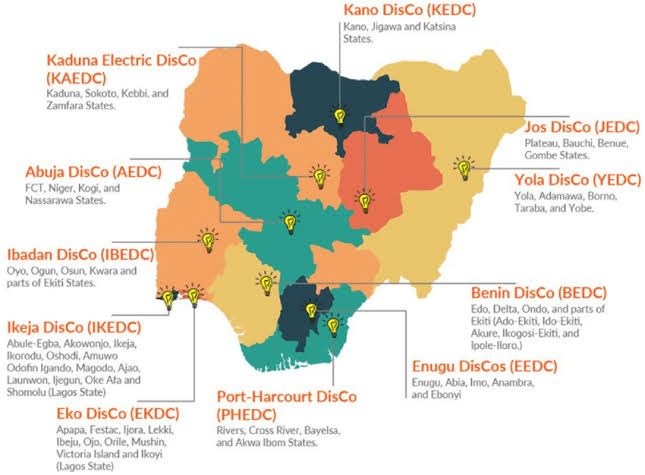
Federal Government has explained that it sacked core investors and management of six of the 11 electricity distribution companies (DisCos) because they failed the nation.
Minister of Power, Abubakar Aliu, who disclosed this in Abuja, yesterday, while making presentations at the 11th edition of the President Muhammadu Buhari Scorecard, said government took the decision because their performance was abysmal.
He named the six DisCos as: Abuja, Benin, Ibadan, Kaduna, Port Harcourt and Kano, adding that other three, Ikeja, Eko and Enugu, are doing very well.
He also noted that Jos and Yola DisCos, which were concessioned in 2022 and 2021, respectively, are trying to find their feet and, therefore, need time to settle down.
Aliu also disclosed that banks, which are now holding 60 per cent equity in the DisCos, are not going to hold it permanently because they are not in the business of providing electricity.
“We have given them between six months and one year to find new buyers who are serious to take over the 60 per cent,” he said.
According to the minister, who reeled out what he called numerous achievements of the current government in the power sector, “this administration would be leaving behind a healthier power sector than we met. With the new investments that we have made and are still making, by the time we leave next year, we would have added additional 4000 megawatts of electricity to the 17,000 we currently have, bringing the total to 21,000 megawatts.”
Answering questions on the cost of electricity in Nigeria, the minister said there is little government can do because electricity is expensive anywhere in the world.
“Government does not have control over the prices of input into the generation or distribution of electricity. Electricity is not a cheap commodity. Before now, Federal Government was spending N600 billion to subsidise electricity, but now, following some reviews, we have been able to bring it down to N152 billion per year,” he said.
The minister added that Nigerians need to pay for electricity, as that is the only way to attract investment and ensure improved service.
Guardian